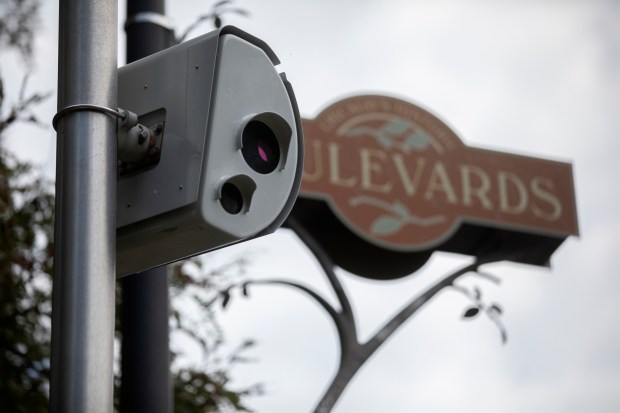Aldermen are set to consider Wednesday whether the maximum speed limit on Chicago streets should be lowered from 30 mph to 25 mph.
Ald. Daniel La Spata notified aldermen Friday that he will move ahead with the final vote at next week’s City Council meeting. The Northwest Side alderman, who has for months pushed the speed limit change, touted his ordinance as a much-needed safety measure.
“We know that it works and we know that it will save lives,” La Spata, 1st, said Friday. “The best time was 10 years ago. The next best time is now.”
La Spata first aired the possibility of lowered speed limits in an early May hearing. At the time, he promised there was no legislation “sitting under the table.” But by October, he had passed his speed-cutting ordinance in an 8-to-5 vote of the council’s Pedestrian and Traffic Safety Committee.
He planned to bring the proposal forward for a final vote in late October, but tabled the measure amid pushback from Mayor Brandon Johnson. Johnson said he told La Spata to “slow it down” to make sure the lowered threshold for speeding tickets would be equitably applied.
“My commitment to safe streets is real, and I will continue to support measures to create safer streets,” Johnson said after the vote was cancelled. “When we talk about equity, we have to talk about implementation and have to be very thoughtful about where these disparities have been pervasive so we don’t repeat the sins of the past.”
La Spata said Friday he has not spoken with Johnson about his decision to force a vote, but described Johnson’s past public comments as “enthusiastically supportive.”
“I want that to be true,” La Spata said. “We talk a lot about policies related to safety in this city, and I don’t think we will pass a more data-informed, evidence-based policy that will keep more Chicagoans alive.”
The alderman estimated the change could save 300 lives over the next decade. In 2023, crashes killed 136 Chicagoans and left about as many people hit and injured as were struck by gunfire, he previously said.
The ordinance would also lower the speed limit in Chicago alleyways to 15 mph, but would not affect roadways controlled by the Illinois Department of Transportation, including many of the city’s busiest streets.
However, changes to state-run streets could follow the ordinance if passed. La Spata said state legislators have told him IDOT is likely to follow the City Council’s lead if it changes the speed limit. Seven state legislators signed on to an endorsement of the ordinance, predicting “an immense positive benefit to public health.”
The legislation also received an endorsement as “a reasonable and safe approach” in an internal Chicago Department of Transportation report La Spata shared. The department estimated that it would cost $2.5 million to change traffic signs and cited similar changes in cities like New York, Seattle and Boston.
La Spata also called for a vote on a resolution to create an interagency working group tasked with designing a more equitable enforcement system for vehicle-related fines and fees.



